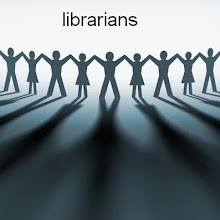Eye on the Future

by Rory Litwin, April 26, 2010
The “assessment piece” and reference strategy
"I want to suggest a possible strategy for reference departments in academic libraries.
I think a lot of library administrators who have an eye on the future see less of a role for reference, at least in the way we currently understand it. As they see it, it seems to me, it’s a waste of money to have someone with a graduate degree sitting at a reference desk helping only a few people throughout the day. And as they see it, the demand for reference service is declining. They’re ready to staff the desk with paraprofessionals or students, and they’re ready to outsource much of collection development and consolidate that function to a smaller group of staff members. There is a vague idea of deploying MLIS holding librarians in new ways, but also a sense that they can save a lot of money by employing fewer of us. As I see it, that puts reference librarians in the position of having to strategize a future path and determine a role for ourselves that we actually want and that is suited to our particular expertise as the library’s connection to faculty and students.
At the same time that we are facing that challenge, there is a trend in higher ed that I think we can use as an opportunity. It’s the emphasis on assessment. It is an opportunity because the assessment mandate gets worked out to favor activities that have measurable learning outcomes and disfavor those that don’t. An accreditation body visits a university and asks them to improve its assessment practices. The university responds by asking units – academic departments and others – to develop their own assessment plans based on a list of educational objectives. The template for the assessment plan is designed with academic units in mind, and non-academic units may complain a little and treat the requirement as a bureaucratic hassle and a meaningless task, since they are not directly involved in producing educational outcomes the way academic departments are.
The opportunity for reference, and for the library as a whole, is to use the new assessment plan to secure a role where information literacy objectives (or related objectives) are emphasized. We can elaborate on what it is we teach in classrooms and while we are helping students at the desk or in our offices in order to create assessment measures that support what we want to do.
We can describe research skills that are not taught outside the library. ACRL’s information literacy standards talk about them in very general ways. I like to think about how we help students understand aspects of the bibliographic landscape of a field. Teaching them to make sense of their search results in the context of their own research problems is important educational work. The assessment piece gives us the opportunity to tell campus administration that we want them to hold us accountable for teaching students how to do research. The process tends to be designed to allow us to set our own objectives, so it gives us an opening and an opportunity to be proactive about our future in our institutions. We can take the bull by the horns."
